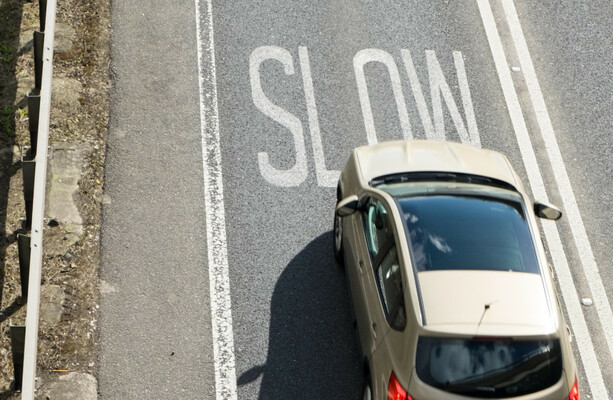Copyright thejournal

We need your help now Support from readers like you keeps The Journal open. You are visiting us because we have something you value. Independent, unbiased news that tells the truth. Advertising revenue goes some way to support our mission, but this year it has not been enough. If you've seen value in our reporting, please contribute what you can, so we can continue to produce accurate and meaningful journalism. For everyone who needs it. One-off amount I already contribute Sign in. It’s quick, free and it’s up to you. An account is an optional way to support the work we do. Find out more. Investigates Investigates Money Diaries The Journal TV Climate Crisis Cost of Living Road Safety Newsletters Temperature Check Inside the Newsroom The Journal Investigates Daft.ie Property Allianz Home The 42 Sport TG4 Entertainment The Explainer A deep dive into one big news story Sport meets news, current affairs, society & pop culture have your say Or create a free account to join the discussion Advertisement More Stories Alamy Stock Photo We need a lower speed limit now to make our towns safer for everyone The government is dragging its feet on reducing the default speed limit in urban areas to 30 km/h, writes Councillor Feljin Jose. 7.01am, 29 Oct 2025 Share options MORE PEOPLE ARE being killed on our roads in recent years after reaching an all time low in 2018, something that has been described as “shocking” by the government. Meanwhile, serious injuries due to collisions have tripled in the last 15 years, which hardly ever gets mentioned. A pedestrian being hit by a car at 50km/h has a less than 50% chance of survival. However, at 30km/h, this increases to 90% ³ while also reducing the number of collisions in the first place. Reducing the default speed limit in urban areas to 30 km/h is a virtually cost-free policy that would drastically decrease the likelihood of a pedestrian dying or being seriously injured in collisions. This has been demonstrated in other countries and is a key action in the government’s Road Safety Strategy – but its rollout is being delayed and weakened down. Putting on the brakes Our national legislation sets the default speed limits for different types of roads. 80 km/h on rural regional roads, 60 km/h on rural local roads, 50 km/h on urban roads etc. Local authorities are allowed to vary them on a case by case basis with good reason. For example, on arterial roads. The change in the default urban speed limit was due to come into effect in the middle of this year. However, the new government called a halt to that plan. It is instead asking all 31 local authorities to reduce speed limits by assessing tens of thousands of kilometres of roads individually. The government’s position is that this would be more efficient and should now be done as early as 2027. At a recent briefing held by the Love30 campaign, I questioned an advisor for Minister of State for road transport Sean Canney about why the current 50 km/h default speed limit couldn’t simply be changed to 30 km/h as proposed initially – but no answer was provided. No one would advocate leaving it to local authorities to change the drink driving limit one-by-one, or implement mandatory seat belt laws. It would be laughable if it wasn’t so serious. A coordinated national approach would not have taken any power away from councillors – it would simply have changed the default from what it currently is, while still allowing them to vary it. Standard speed limits across the country would eliminate confusion and let drivers know that once they enter an urban area, the speed limit is 30km/h unless signposted otherwise. Advertisement However, speed limits can be controversial, and for this reason, the government has decided to pass the buck by asking under-resourced local authorities to go through an over-complicated process. This will ultimately cost lives and limbs. This approach to safety marks a worrying step in the wrong direction where political courage is more important than ever, as the recent EU-US trade agreement will fundamentally change things. Bigger, riskier cars At the same time as the government is playing around with crucial speed limit plans, the European Union is set to let American cars onto the EU market without checking they match up with our long-held safety standards. American manufacturing has been struggling for decades and US President Donald Trump wants more countries to buy American cars. To achieve this, in the recent EU-US trade agreement, he secured “mutual recognition” of vehicle safety standards. This means that the EU, which has stronger safety standards than the US, is going to let dangerous American vehicles loose on our streets to appease the Trump regime. Those cars will be able to bypass European laws on, for example, emergency braking, size and shape. While modern vehicle standards have made cars safer for drivers and passengers of the vehicles, larger, heavier and faster cars have made roads more dangerous for pedestrians and cyclists. One of the newly available cars will be the RAM pick-up. Currently only available through a loophole, the new agreement will make it more readily available and cheaper to buy in the EU. Cars with higher bonnets have larger blind spots and are more likely to drag pedestrians and cyclists underneath the car in a crash as opposed to over the car. The bonnet height of the RAM is roughly twice the size of a regular car you’d see in Ireland, creating a blindspot that would leave the driver unable to see the average primary school child. According to an analysis by transport advocacy group T&E, “pedestrian road deaths in the US are now three times higher than in Europe (after having been roughly the same in 2009)”, largely down to the increase in pick-up trucks, which are three times more likely to kill a pedestrian or cyclist than a normal car. Shane McGowan joked that in America they had “cars big as bars”. With the RAM pick-up, this becomes a reality, with the 6-metre length being several times the size of the Dawson Lounge’s facade. Now, pedestrians and cyclists in Ireland will have to pay for Trump’s domestic policy priorities. While geopolitics swirls above our heads and paygrades, we are sleepwalking into much more dangerous roads. That is, unless we take action, like making sure our speed limits are at safe levels. The government is delaying and delegating cost-free decisions that are politically tricky but necessary. While it dithers, our roads will only become less safe. Feljin Jose is a Dublin city councillor and the Green Party’s spokesperson for transport. Readers like you are keeping these stories free for everyone... A mix of advertising and supporting contributions helps keep paywalls away from valuable information like this article. Over 5,000 readers like you have already stepped up and support us with a monthly payment or a once-off donation. Support The Journal Feljin Jose View 30 comments Send Tip or Correction Embed this post To embed this post, copy the code below on your site Email “Opinion: We need a lower speed limit now to make our towns safer for everyone”. Recipient's Email Feedback on “Opinion: We need a lower speed limit now to make our towns safer for everyone”. Your Feedback Your Email (optional) Report a Comment Please select the reason for reporting this comment. Please give full details of the problem with the comment... This is YOUR comments community. Stay civil, stay constructive, stay on topic. Please familiarise yourself with our comments policy before taking part. Leave a Comment Submit a report Please help us understand how this comment violates our community guidelines. Damaging the good reputation of someone, slander, or libel. Racism or Hate speech An attack on an individual or group based on religion, race, gender, or beliefs. Trolling or Off-topic An attempt to derail the discussion. Inappropriate language Profanity, obscenity, vulgarity, or slurs. Advertising, phishing, scamming, bots, or repetitive posts. Please provide additional information Thank you for the feedback Your feedback has been sent to our team for review. Leave a commentcancel Newly created accounts can only comment using The Journal app. This is to add an extra layer of security to account creation. Download and sign into the app to continue. Access to the comments facility has been disabled for this user View our policy ⚠️ Duplicate comment Post Comment have your say Or create a free account to join the discussion Road Safety speed limit News in 60 seconds The Morning Lead 'Democracy includes the power to dissent': Our readers tell us why they spoiled their votes Stephen McDermott HMV to open third shop in Ireland following mass closures in 2016 18 mins ago Climate Change Over half a million people are dying every year due to rising heat globally Good Morning The 9 at 9: Wednesday At least 81 killed in Israeli strikes on Gaza as Trump says 'nothing' will jeopardise ceasefire IRREGULAR PAYMENTS Report into RTÉ financial matters to be discussed by Cabinet today CONSTITUTIONAL LIMITS Trump says he's 'not allowed to run' for another term but will 'see what happens' English tourist dies from injuries after alleged Temple Bar assault Extreme Weather Why is Hurricane Melissa so strong and how will it impact Ireland? At least 300 jobs at risk as Fastway parent company enters receivership Belgium v Ireland, Nations League play-offs more from us Investigates Money Diaries The Journal TV Journal Media Advertise With Us About FactCheck Our Network FactCheck Knowledge Bank Terms & Legal Notices Terms of Use Cookies & Privacy Advertising Competition more from us TV Listings GAA Fixtures The Video Review Journal Media Advertise With Us Our Network The Journal FactCheck Knowledge Bank Terms & Legal Notices Terms of Use Cookies & Privacy Advertising Competition © 2025 Journal Media Ltd Terms of Use Cookies & Privacy Advertising Competition Switch to Desktop Switch to Mobile The Journal supports the work of the Press Council of Ireland and the Office of the Press Ombudsman, and our staff operate within the Code of Practice. You can obtain a copy of the Code, or contact the Council, at https://www.presscouncil.ie, PH: (01) 6489130, Lo-Call 1800 208 080 or email: mailto:info@presscouncil.ie Report an error, omission or problem: Your Email (optional) Create Email Alert Create an email alert based on the current article Email Address One email every morning As soon as new articles come online



